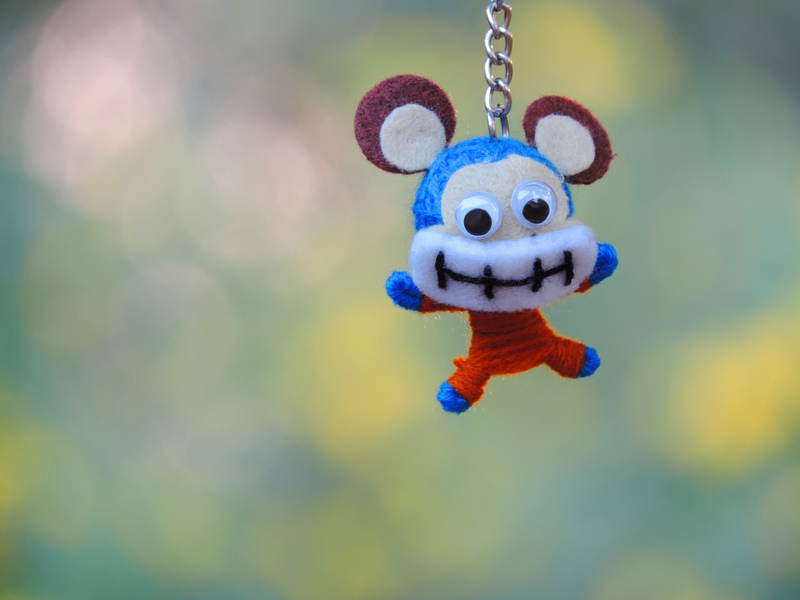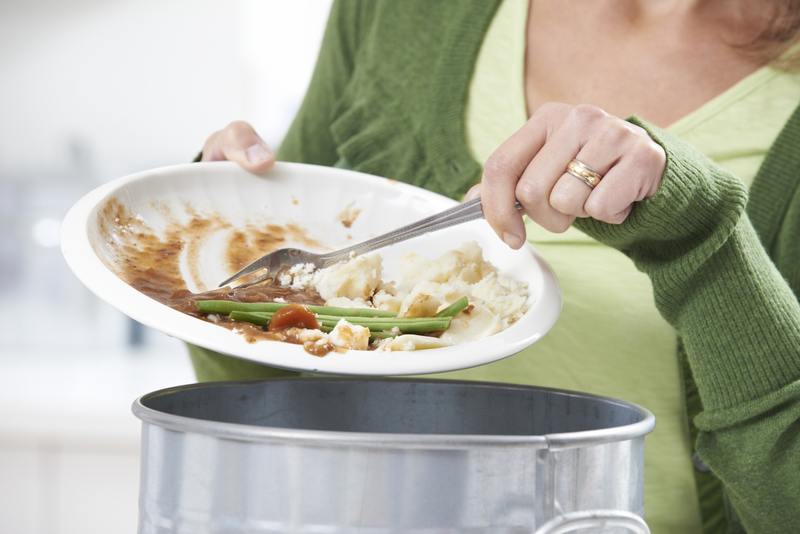Less Clutter, Less Stress: Simplifying for a Serene Life
In today's fast-paced world, it's common to feel overwhelmed by the sheer quantity of possessions, commitments, and information we try to juggle daily. Clutter--whether physical, digital, or emotional--can add to our anxiety and overall stress. Less clutter, less stress is more than a catchy phrase; it's a lifestyle philosophy that leads to greater peace, productivity, and happiness. In this comprehensive guide, you'll discover why simplifying your surroundings and habits is essential for your well-being, and actionable tips for creating a more serene, decluttered life.
Why Simplifying Reduces Stress
The journey toward a serene life begins with understanding the significant connection between clutter and stress, physically and mentally. Scientific research confirms that a cluttered environment increases anxiety, impedes productivity, and can even interfere with restful sleep. Conversely, embracing simple living and deliberately minimizing overflow can help you reclaim mental clarity, time, and joy.
How Clutter Impacts Well-Being
- Physical Stress: Cluttered spaces are harder to clean, causing frustration when searching for needed items and potentially harboring dust and allergens.
- Mental Fatigue: Visual chaos increases cognitive overload, making it challenging for your brain to focus and process information.
- Emotional Burden: Unfinished projects and excess belongings contribute to an ongoing sense of guilt and overwhelm.
- Saps Productivity: Time is wasted managing, cleaning, and searching through cluttered areas.
- Disrupts Relationships: Shared or common areas filled with excess can cause strain among family, friends, or roommates.
By reducing clutter, you free up mental energy and physical space, naturally lowering your stress levels. Let's explore actionable strategies to simplify your life and cultivate tranquility.

Start With Physical Decluttering
The Link Between Cluttered Spaces and Stress
The physical environment around you directly affects your mood and emotional health. Walking into a room piled with random belongings, unopened mail, and unused items can subconsciously signal chaos to your brain. Conversely, neat, open areas evoke feelings of calm and control.
Proven Decluttering Techniques
-
The Four-Box Method:
Take four boxes labeled Keep, Donate, Trash, and Relocate. As you work through a space, place each item in one of the boxes. Work quickly and aim to make decisive choices. -
Marie Kondo's Philosophy:
Ask yourself if each item sparks joy. If not, thank it and let it go. This approach emphasizes gratitude and mindful ownership, making parting with unnecessary items easier. -
Room-by-Room Approach:
Tackle one room at a time--start with areas where clutter is most overwhelming, such as the kitchen, bedroom, or entryway. Breaking the task down prevents overwhelm and shows quick results.
Decluttering 'Hotspots'
- Kitchens: Remove duplicate gadgets, expired food, and utensils you never use.
- Closets: Donate clothes you haven't worn in the past year; organize by category for easy access.
- Living Room: Limit decorative objects; keep only favorites displayed, store others away.
- Bathroom: Toss nearly empty or expired toiletries, organize products for daily use.
Remember, less clutter equals less stress. Physical decluttering is the foundational step toward a serene life.
The Power of Minimalism
Minimalism is a lifestyle focused on living with intention rather than excess. It's about prioritizing the things you truly value and clearing away the rest. When you embrace minimalism, you reduce decision fatigue, create more time for meaningful experiences, and lower your levels of anxiety.
Core Principles of Minimalist Living
- Quality Over Quantity: Invest in fewer, higher quality belongings rather than many disposable or low-value items.
- Clear Surfaces: Maintain empty or almost-empty surfaces to promote a sense of calm in your surroundings.
- Intentional Purchases: Only buy items that serve a purpose or bring joy, avoiding impulse purchases.
- Functional Design: Organize your home so that everything has a designated place.
Minimalism isn't about austerity--it's about freeing yourself from the nonessential so you can enjoy a richer, more serene life with less stress and more fulfillment.
Digital Declutter for Modern Serenity
The Impact of Digital Clutter
In our increasingly digital world, mental stress is often amplified by overflowing email inboxes, endless phone notifications, and cluttered devices. Digital simplicity is just as vital as tidying your physical space.
Steps to Organize Your Digital Life
- Inbox Zero: Unsubscribe from unnecessary newsletters, organize messages into folders, and aim to keep your main inbox empty.
- Desktop Clean-out: Regularly delete or archive files you no longer need, use folders for easy navigation, and limit desktop icons.
- App Audit: Remove unused or redundant apps from your phone and computer.
- Notification Management: Disable non-essential notifications to reduce distraction and anxiety.
- Social Media Limits: Set boundaries around usage, unfollow accounts that do not contribute positively to your life, and consider scheduled digital detoxes.
Achieving less digital clutter results in decreased stress and a sharper capacity to focus on what truly matters.
Mental & Emotional Decluttering
Understanding Emotional Baggage
Our stress isn't only from the physical or digital world. Mental and emotional clutter--lingering regrets, unresolved conflicts, or too many commitments--are just as taxing on your well-being.
Ways to Simplify Your Mind and Emotions
- Journaling: Write down your thoughts to gain clarity, process emotions, and identify what's truly important.
- Meditation & Mindfulness: Regular meditation practices help quiet mental chatter, reduce anxiety, and promote inner peace.
- Set Boundaries: Learn to say no to obligations that drain you. Prioritize activities and relationships that nurture your soul.
- Letting Go: Practice forgiveness and detach from grudges or anxieties about the past or future.
Decluttering your mind is about narrowing your focus, releasing what you cannot control, and embracing presence. This leads to a noticeably less stressful and more serene life.
Create Sustainable Simplification Habits
Daily Routines for a Calm Life
Building simple routines prevents future clutter and ensures your tidy, serene environment remains consistent. Here are some practical, sustainable habits to sustain your newfound simplicity:
- Daily Reset: Spend 10 minutes each evening putting away stray objects, washing dishes, and straightening your living areas.
- One-In, One-Out Rule: For every new item brought into your home, remove one old item to maintain balance.
- Seasonal Declutters: Plan a quarterly home review to reassess and clear out unnecessary belongings.
- Mindful Consumption: Think before you buy--do you need it, or is it a fleeting desire?
- Family Involvement: Teach children and other household members the benefits of efficiency and simple living.
Remember, less clutter doesn't happen by accident--it's the result of ongoing, mindful choices.
The Benefits of a Serene, Simplified Life
Physical Health
- Cleaner, healthier living spaces with less dust and allergens
- Reduced risk of injury from tripping or falling on excess items
Mental Clarity
- Fewer distractions competing for your attention
- Easier time managing daily tasks and long-term goals
- More mental energy for creativity and meaningful pursuits
Emotional Satisfaction
- A sense of accomplishment and control in your daily life
- Deeper appreciation for the things and people you truly value
- Improved relationship dynamics due to less shared stress
Financial Freedom
- Less spending on unnecessary items
- More funds available for treasured experiences and investments
The core message is simple: Less clutter leads to less stress, which paves the way for a more serene, joyful life.

Frequently Asked Questions (FAQ)
How do I start decluttering if I feel overwhelmed?
Begin small and focus on one drawer, shelf, or corner. Set a timer for 10-15 minutes, and don't aim for perfection. Consistency is key--regular small actions prevent overwhelm and add up to big changes.
Is it possible to have less clutter with children or roommates?
Absolutely. Involve everyone in the process and explain the benefits. Create shared systems for organization. Teach children about the value of simplicity, and encourage shared responsibility for tidiness.
What if I regret getting rid of something?
Most people rarely miss items they've thoughtfully chosen to remove. Take photos of sentimental objects if needed. Remember: freeing yourself from clutter creates space for new experiences and memories.
How often should I declutter?
Adopt daily and weekly routines for ongoing maintenance. Additionally, schedule a thorough declutter seasonally--spring and fall are ideal times for reassessment.
Final Thoughts: Embrace Less for a More Serene Life
The modern era often glorifies abundance and multi-tasking, but true happiness often lies in embracing simplicity. A life with less clutter and less stress allows for deeper focus, better relationships, and genuine peace. Simplifying doesn't occur overnight, but with every intentional action--whether sorting a junk drawer or rethinking your digital habits--you carve a path toward serenity.
Start today by taking a single, small step toward decluttering one aspect of your life. Recognize that a serene, simplified existence is not just possible--it's transformative. As you progress, you'll find that every possession, task, and commitment you let go of brings you closer to your calmest, happiest self.